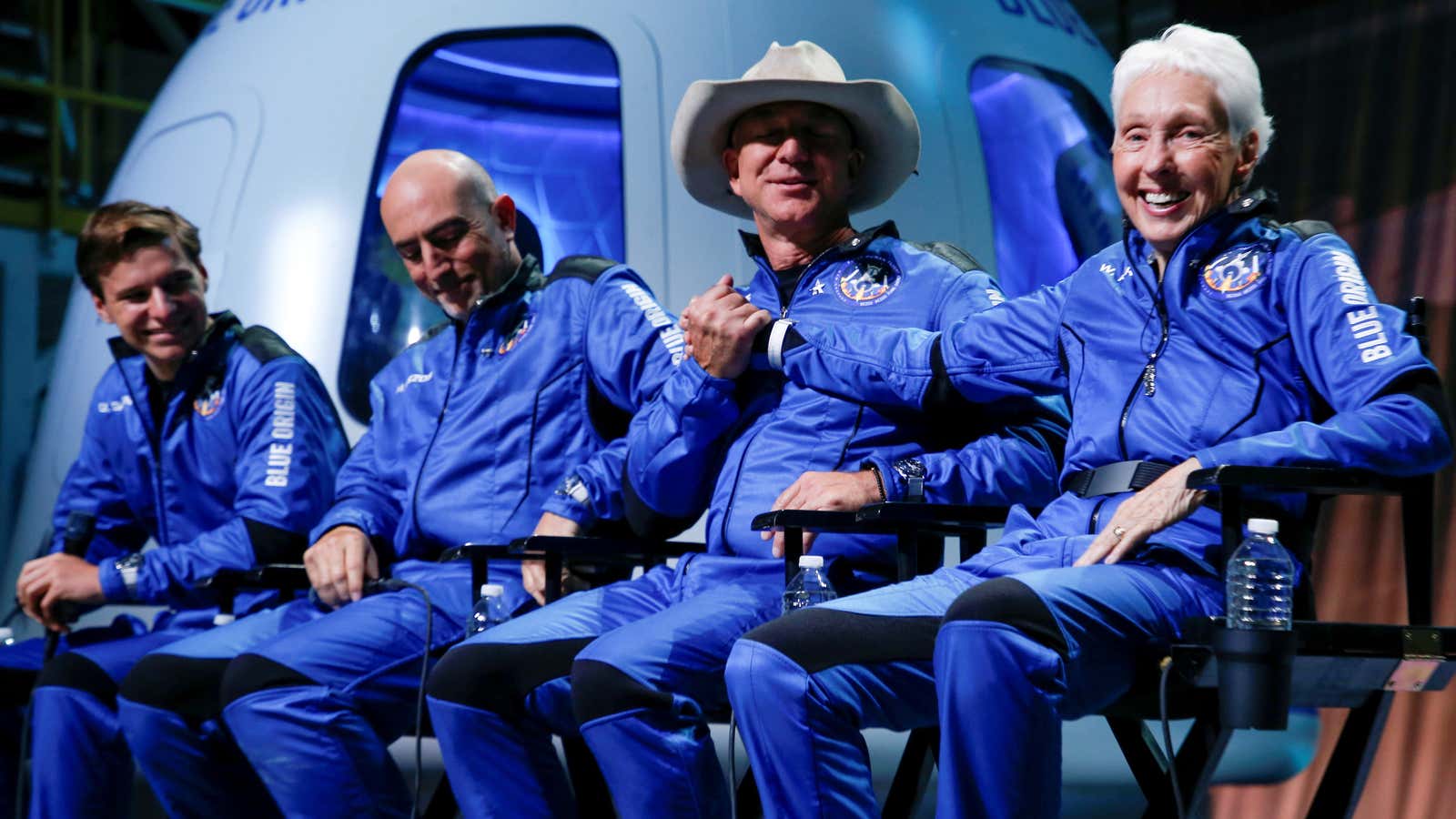Jeff Bezos went to space, and gave the industry the worst day of publicity it’s had in recent memory.
The animus had little to do with his space company, Blue Origin. Much of it was driven by Bezos’ wealth and how he got it, amplified by recent reporting into the poor treatment of Amazon’s logistics workers and how the company’s founder used (legal) strategies to avoid paying income tax.
A good deal of the Bezos hate is simply people upset with the idea of private enterprise at all, or based in false binaries about Bezos not spending his money to fight poverty or climate change. (Bezos, a latecomer to philanthropy, has committed $10 billion to organizations focused on decarbonizing the economy and $100 million to feeding the poor.)
Other critics clearly have basic misconceptions about space exploration: Some portion of the public incorrectly thinks that previous NASA successes did not involve private companies, or that people like Bezos, Richard Branson, or Elon Musk are replacing or redirecting NASA’s science work.
The reality is both more prosaic and more interesting: Bezos and Branson have had very little impact on NASA thus far beyond offering a new (and appreciated) venue for experimental payloads in microgravity, while Musk’s SpaceX has saved the agency billions and given it the ability to fly astronauts once again.
Part of the problem is the news media, particularly TV news, which has amplified the import of Branson and Bezos’ suborbital tourism projects beyond all reason. Viewers were naturally disappointed in a space race that results in just a few minutes of microgravity—even as others fretted nonsensically that billionaires are set to abandon the planet.
Blue Origin’s feat of engineering is lost among distractions
And then there was what actually happened at the launch, where the focus on Bezos, his family and his aspirations clouded over what Blue Origin had actually accomplished. Any business catering to the ultra-wealthy is bound to attract criticism, but the sudden pivot to announcing $100 million donations to pundit Van Jones and chef-activist José Andrés was so out of left field that it felt like what it was: an effort at distraction.
The real shame is that, as Bezos pointed out, hundreds of people worked incredibly hard to design, test, and operate the New Shepard rocket booster and space capsule. Blue Origin has refused multiple requests to interview these engineers and let them share the challenges they surmounted to create this vehicle; no executives joined the crew for a post-flight press conference.
The public reception to Bezos’ flight could damage the broader effort to expand the ways we utilize space on behalf of humanity. Public-private partnerships at NASA have led to major success, but they still face many critics who will now build on rhetoric like the “Bezos bailout.” The irony that this will ultimately benefit the traditional contractors of the military-industrial complex is clearly lost to Bezos’ progressive critics.
The New Shepherd may have lasting significance but much of that rests on what Blue Origin does with the lessons from building it. The focus on suborbital tourism distracts from the strides space users have made in adding value to everyday life. Bezos, clad in his cowboy hat and boots, calls to mind the image of the dude ranch and tourists cosplaying as cowboys after the transcontinental railroad revolutionized transportation in the 19th century.
The real businesses of space will look more like the railroad, not the dude ranch. Bezos famously uses customer focus as Amazon’s benchmark, but in making himself the key customer for Blue Origin, he forgot that the market for space is so much broader than the people for whom it is already a passion.
A version of this post originally appeared in Quartz’s Space Business newsletter.
